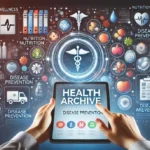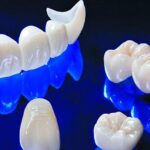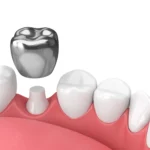Introduction
Wisdom tooth extraction is one of the most common dental procedures performed worldwide. Whether due to overcrowding, impacted teeth, or recurring infections, removing wisdom teeth helps alleviate discomfort and prevent future oral health issues. However, while the procedure itself is straightforward, recovery requires careful attention, particularly when it comes to oral hygiene. Among the most common questions patients ask is, “When can I use mouthwash after wisdom tooth extraction?” This seemingly simple question is crucial, as improper oral care during recovery can lead to complications, such as infection or dry socket, slowing down the healing process.
After a wisdom tooth extraction, your body enters a healing phase that involves the formation of a blood clot at the extraction site. This clot serves as a protective barrier, shielding the bone and nerves from bacteria and external irritants. One of the most important aspects of recovery is avoiding anything that could disturb this clot. While mouthwash is typically an essential part of your daily oral hygiene routine, its use immediately after surgery can pose risks to your recovery. This is why it’s essential to understand when you can use mouthwash after wisdom tooth extraction without disrupting the healing process.
Key Practices for Safe Oral Care After Wisdom Tooth Extraction: When Can I Use Mouthwash?
After undergoing wisdom tooth extraction, proper care is essential to ensure a smooth recovery and prevent complications. One common question patients have is “When can I use mouthwash after wisdom tooth extraction?” The key to safely incorporating mouthwash into your routine is timing, choosing the right type of mouthwash, and following expert recommendations for the first few days after surgery. Below, we’ll explore the best practices to follow, the factors that contribute to a successful recovery, and common mistakes to avoid.
Key Factors for Successful Healing
The primary goal after wisdom tooth extraction is to promote healing while protecting the blood clot that forms at the extraction site. A few factors play a critical role in achieving this:
- Timing: Knowing when you can use mouthwash after wisdom tooth extraction is crucial. Immediately after the surgery, the first 24 to 48 hours are the most critical for preventing disturbances to the blood clot. During this time, you should avoid mouthwash entirely to reduce the risk of dislodging the clot.
- Gentle Techniques: Even when you begin using mouthwash, be gentle. Vigorous swishing can dislodge the blood clot and delay healing. Instead, opt for gentle rinses with your mouthwash of choice, and avoid overuse in the early stages of recovery.
- Choosing the Right Mouthwash: Using the correct mouthwash is just as important as timing. Alcohol-based mouthwashes should be avoided in the first week, as alcohol can irritate sensitive tissue and cause additional inflammation. Non-alcoholic, gentle mouthwashes are often recommended. For some patients, your dentist may suggest an antibacterial rinse, such as chlorhexidine, to prevent infection.
Best Practices to Follow
- Follow Your Dentist’s Instructions: Always consult your dentist about when you can use mouthwash after wisdom tooth extraction. Every patient’s recovery timeline is different, and your dentist will provide personalized advice based on the specifics of your surgery.
- Start with Saltwater Rinses: For the first few days, stick to saltwater rinses, which are a safer alternative for maintaining oral hygiene without risking complications. Dissolve half a teaspoon of salt in warm water and gently swish it around your mouth. This simple technique helps cleanse the mouth and reduce the risk of infection.
- Wait for the Blood Clot to Settle: After the first 48 hours, and once the clot has fully formed, you may begin using mouthwash. At this point, when can I use mouthwash after wisdom tooth extraction depends on your recovery progress. If healing is on track, a dentist-approved, non-alcoholic mouthwash can be introduced sparingly.
Common Mistakes to Avoid
- Using Mouthwash Too Soon: One of the most common mistakes is using mouthwash too early, which can disturb the blood clot and cause a painful condition known as dry socket. Always wait until your dentist gives the go-ahead.
- Using Alcohol-Based Mouthwash: Many people overlook the importance of alcohol-free mouthwash. Alcohol can dry out and irritate the tissues in the extraction area, leading to increased discomfort and delayed healing.
- Vigorous Swishing: Overzealous swishing of mouthwash can disrupt the healing process. Always be gentle, and avoid swishing too forcefully, especially in the first few days after surgery.
The Benefits of Proper Mouthwash Use After Wisdom Tooth Extraction

Understanding when can I use mouthwash after wisdom tooth extraction is not just about protecting your oral health during recovery; it’s about ensuring a smoother healing process, preventing complications, and improving overall recovery outcomes. When used at the right time and with the appropriate techniques, mouthwash can enhance the healing process, maintain oral hygiene, and ultimately lead to better results in the recovery period.
1. Prevents Infection and Promotes Healing
The primary benefit of using mouthwash at the correct time after wisdom tooth extraction is its ability to help prevent infection. After surgery, the extraction site is vulnerable to bacteria and debris, which could potentially cause infection. Non-alcoholic mouthwashes, especially those with antibacterial properties, help keep the wound clean and free from harmful microorganisms, reducing the risk of complications. By following the proper guidelines on when can I use mouthwash after wisdom tooth extraction, patients can significantly reduce the likelihood of infections, supporting faster and more efficient healing.
For example, patients who use prescribed antibacterial mouthwash, like chlorhexidine, during the healing phase often experience fewer infections and a faster recovery time. Studies show that antibacterial rinses can reduce the number of bacteria in the mouth, which directly lowers the chance of post-surgical infections.
2. Reduces Swelling and Inflammation
Using mouthwash at the right stage of recovery can also help reduce swelling and inflammation in the extraction area. Mouthwashes containing ingredients like aloe vera, chamomile, or other soothing agents can alleviate discomfort and promote healing. These ingredients help calm irritated tissues and prevent excessive swelling, which is common after oral surgeries like wisdom tooth extractions.
A case study from a dental clinic showed that patients who used a mild, non-alcoholic mouthwash following their dentist’s advice for when can I use mouthwash after wisdom tooth extraction reported reduced swelling and discomfort compared to those who didn’t use mouthwash at all during recovery. This led to a more comfortable healing process and faster recovery times, allowing patients to return to their regular routine sooner.
3. Maintains Oral Hygiene Without Disrupting Healing
One of the key advantages of using mouthwash at the right time is maintaining oral hygiene during recovery without disrupting the healing process. Gentle mouthwashes provide a safer way to keep the mouth clean, especially when traditional brushing may be too aggressive near the extraction site. Using mouthwash helps patients feel confident that their mouth is free from food debris and bacteria while their body focuses on healing.
When you ask, when can I use mouthwash after wisdom tooth extraction, the answer hinges on balancing oral care with healing. By waiting for the right time to use mouthwash, patients can ensure they’re not only preventing infection but also facilitating a cleaner, healthier mouth during recovery.
4. Enhanced Satisfaction and Peace of Mind
Lastly, proper mouthwash use contributes to overall patient satisfaction during recovery. Knowing that they’re actively participating in the healing process and avoiding complications gives patients peace of mind. A study showed that patients who followed the correct post-operative oral care routine, including timely mouthwash use, were more satisfied with their recovery and experienced fewer complications than those who neglected to follow these guidelines.
Challenges in Using Mouthwash After Wisdom Tooth Extraction: Overcoming Obstacles for a Smooth Recovery
Understanding when can I use mouthwash after wisdom tooth extraction is crucial for ensuring a smooth and successful recovery. However, many individuals face challenges during this period that can hinder their healing process and increase the risk of complications. These obstacles can stem from a lack of knowledge about post-operative care, misunderstandings about the appropriate timing for mouthwash use, and the temptation to return to normal oral hygiene routines too quickly.
1. Lack of Awareness About Proper Timing
One of the biggest challenges patients face is knowing exactly when they can start using mouthwash after wisdom tooth extraction. Many individuals are eager to resume their regular oral care routine, but using mouthwash too early can disrupt the healing process. Swishing mouthwash aggressively or using alcohol-based mouthwashes before the blood clot has fully formed can dislodge the clot, leading to complications like dry socket. This can result in severe pain and delayed recovery, significantly affecting the healing timeline.
Solution: To avoid this issue, it’s essential for patients to follow their dentist’s instructions carefully. Understanding when can I use mouthwash after wisdom tooth extraction is crucial. Most dental professionals recommend waiting at least 24 to 48 hours before using mouthwash and avoiding vigorous rinsing until the extraction site has had time to heal. Opting for saltwater rinses as a gentle alternative in the first few days can help cleanse the mouth without risking complications.
2. Confusion Over Which Mouthwash to Use
Another challenge is choosing the right type of . Many over-the-counter mouthwashes contain alcohol, which can irritate sensitive tissues and slow down healing. Patients might not realize the importance of using non-alcoholic, gentle during the early stages of recovery. Additionally, some individuals may not know which are safe or appropriate for their recovery, leading to confusion and improper use.
Solution: To address this, individuals should consult their dentist about the most suitable for their situation. Non-alcoholic or those with soothing ingredients like aloe vera or chamomile are often recommended for the first week after extraction. If an antibacterial is necessary, a dentist-prescribed option, such as chlorhexidine, may be the best choice for preventing infection.
3. The Temptation to Rush the Recovery Process
Lastly, many patients face the temptation to return to their regular oral care habits too soon. The desire to eliminate bad breath, maintain oral cleanliness, or simply feel “normal” again can lead to premature use. This impatience often stems from discomfort or the misconception that can speed up the healing process. However, rushing this process can lead to unwanted complications and a longer recovery time.
Solution: Patience is key during the recovery process. By understanding when can I use mouthwash after wisdom tooth extraction and following the recommended recovery timeline, patients can avoid unnecessary setbacks. Instead of rushing, it’s best to focus on gentle care, such as saltwater rinses and staying hydrated, until it’s the right time to introduce into your routine. Following your dentist’s recommendations will ensure a safer and faster recovery.
Actionable Tips for Safe Mouthwash Use After Wisdom Tooth Extraction

Whether you’re new to wisdom tooth extraction or a more experienced patient recovering from the procedure, understanding when can I use mouthwash after wisdom tooth extraction is essential for a smooth and speedy recovery. The right care during the healing process can help you avoid complications and ensure that your mouth remains clean and free from bacteria. Here, we’ll provide actionable tips for both beginners and advanced users to help guide you through the process.
For Beginners: Mastering the Basics of Mouthwash Use After Wisdom Tooth Extraction
If you’re new to wisdom tooth extraction or have just had the procedure, it’s important to start with a few key practices to ensure proper healing and prevent infection. Here are some basic tips to help you get started:
- Follow Your Dentist’s Instructions
Always follow your dentist’s advice regarding when can I use mouthwash after wisdom tooth extraction. Your dentist will give specific instructions based on your situation, and following them closely will help you avoid unnecessary complications. Generally, you should avoid entirely for the first 24-48 hours to let your body form a protective blood clot. - Start with Saltwater Rinses
A safe and effective alternative to during the initial healing phase is a simple saltwater rinse. Mix half a teaspoon of salt with a cup of warm water and gently swish it around your mouth. This solution helps reduce bacteria without disrupting the blood clot. Use saltwater rinses for the first few days until your dentist advises you to switch to. - Use Non-Alcoholic Mouthwash
After the first few days, once the extraction site has had time to heal, you can start using a non-alcoholic . Alcohol-based can irritate sensitive tissues and delay healing. Look for a gentle, alcohol-free that’s designed for sensitive mouths. - Be Gentle When Rinsing
When it’s time to introduce , remember that vigorous swishing can dislodge the blood clot. Be gentle and avoid swishing too forcefully. Gentle rinsing will help maintain the cleanliness of your mouth while protecting your healing site.
For Advanced Users: Optimizing Your Mouthwash Routine Post-Extraction
For those who have experience with wisdom tooth extractions or are well into their recovery process, there are a few strategies to optimize your routine and promote even better healing.
- Monitor Healing Progress
If you’re wondering when can I use mouthwash after wisdom tooth extraction, the answer will depend on how well your mouth is healing. Advanced users should regularly monitor the extraction site for signs of progress, such as the disappearance of swelling and the formation of tissue. If you notice any unusual pain or swelling, it may be best to wait a bit longer before resuming mouthwash use. - Incorporate Antibacterial Mouthwash
Once your extraction site is healing well, you can consider using an antibacterial mouthwash, like chlorhexidine, which your dentist might recommend. These help prevent infection and reduce bacteria that could disrupt the healing process. Remember to use it as directed by your dentist, typically for about 7-10 days post-surgery. - Use Mouthwash with Natural Ingredients
For advanced users who are looking for more natural options, consider with ingredients like aloe vera, tea tree oil, or chamomile. These ingredients offer soothing and anti-inflammatory properties that can help with healing while still keeping your mouth clean. Many herbal and natural are available over-the-counter, but make sure to consult with your dentist before switching to a natural product. - Stick to the Schedule
Once your dentist gives the green light to start using again, it’s important to stick to a regular schedule. Consistent use will help maintain your oral hygiene without overdoing it. Ensure you are using mouthwash at appropriate intervals, as excessive use can sometimes lead to oral irritation.
Future Trends in Mouthwash Use After Wisdom Tooth Extraction: What to Expect
As dental care continues to evolve, the question of when can I use mouthwash after wisdom tooth extraction is likely to be shaped by emerging trends in oral health, technology, and patient care. In the near future, patients can expect to see advancements in the products they use, as well as more personalized and data-driven approaches to post-surgical recovery.
1. Advancements in Mouthwash Formulations
One of the most exciting developments is the ongoing research into more effective and safer formulations. As we learn more about the oral microbiome and the delicate balance of bacteria in our mouths, will likely become more tailored to specific healing needs. For example, future may be designed to target specific bacteria that could interfere with recovery after wisdom tooth extraction, minimizing the risk of infection without disrupting the body’s natural healing process.
Experts predict that by customizing for patients recovering from oral surgeries like wisdom tooth extractions, we can enhance healing outcomes. This could mean less irritation and faster recovery times. As a result, knowing when can I use mouthwash after wisdom tooth extraction will be guided not just by a fixed timeline, but also by individual needs and the specific formula of the being used.
2. Incorporation of Smart Technology
In the coming years, we might also see smart oral care tools that monitor recovery in real-time. These devices could provide feedback on oral hygiene practices, including use, by tracking the healing progress of the extraction site. For instance, a smart bottle might connect to a mobile app, alerting patients when it’s safe to resume use or suggesting specific formulas based on real-time conditions in the mouth. This integration of technology would provide a more precise answer to the question when can I use mouthwash after wisdom tooth extraction.
3. Personalized Post-Operative Care
The trend toward personalized healthcare is also affecting dental recovery. In the future, dental professionals might use advanced diagnostics, such as DNA analysis or microbiome testing, to create personalized recovery plans. This could mean that the timeline for resuming use after wisdom tooth extraction will vary from patient to patient, with customized guidance based on individual healing progress.
4. Increased Focus on Natural and Gentle Products
As consumers become more health-conscious, the demand for natural and alcohol-free will continue to rise. In the future, patients may have access to an even wider variety of that use natural ingredients to promote healing, such as essential oils, aloe vera, or green tea extract. These products will cater to those looking for gentler alternatives during recovery, allowing them to maintain proper oral hygiene while being mindful of the delicate healing process.
Preparing for the Future
To stay ahead of these trends, individuals should stay informed about the latest developments in oral care. It will be important to consult with your dentist to see if new products or technologies can aid in your recovery. As advancements are made in personalized care, patients should expect more tailored advice on when can I use mouthwash after wisdom tooth extraction. Staying open to these innovations will ensure that individuals can make the most of their recovery process while safeguarding their oral health.
Conclusion
In this comprehensive guide, we’ve explored the critical question of when can I use mouthwash after wisdom tooth extraction and provided essential information to ensure a smooth recovery. We discussed the importance of following your dentist’s advice, understanding the risks of using too early, and the significance of gentle alternatives like saltwater rinses during the first few days post-surgery. We also highlighted the various types of , such as alcohol-free and antibacterial options, that can help support healing once it’s safe to use them.
The key takeaway is that proper timing is crucial. Using too soon or choosing the wrong type can disrupt the healing process, potentially leading to complications such as dry socket or infection. Understanding when can I use mouthwash after wisdom tooth extraction will help you protect the healing site and maintain good oral hygiene throughout your recovery.










